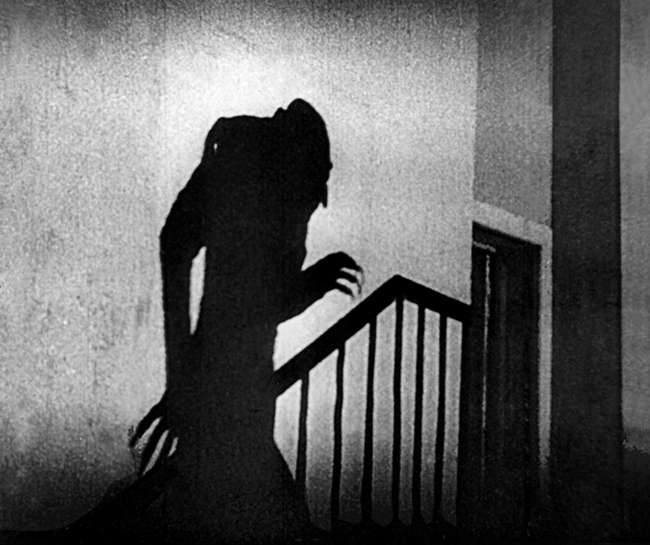Nosferatu (1922)
by Friedrich Wilhelm Murnau
POSTED ON 27 SEPTEMBER 2022
On his way to meet a mysterious count, a real estate agent is received by Nosferatu, an "un-dead" being, who heads west to inflict the plague and death… Adapting Bram Stoker’s Dracula, Murnau created the prototype for all vampire films; a magnificent horrific poem that recaptures the magical romanticism of Germanic culture.
In the 1922 battered Germany of the Weimar Republic, as the economic crisis raged on and the shadow of totalitarianism loomed, Murnau took on the Dracula myth, placing it in the tradition of the grand German expressionist films such as The Cabinet of Dr. Caligari (Robert Wiene, 1920) or The Golem: How He Came into the World (Paul Wegener and Carl Boese, 1920). The project was conceived by producers Albin Grau and Enrico Dieckmann, who together founded Prana Film, and entrusted Henrik Galeen with the adaptation of Bram Stoker's Dracula. The latter took a several liberties while conserving the original plot of the baroque novel.
A great masterpiece, adored by the Surrealists (led by Georges Sadoul) for its poetic force, Nosferatu was Murnau's ticket to Hollywood, where he would direct Sunrise four years later. Following the movie’s release, Bram Stoker's widow sued for plagiarism, condemning the producers to destroy the prints and negative of Nosferatu. The film disappeared until Florence Stoker's death in 1937, when hidden prints resurfaced. In 1984, the work was restored in its entirety for the first time.

A silent film concert accompanied by the Orchestra of the Opera of Lyon, conducted by Timothy Brock
Nosferatu by Friedrich Wilhelm Murnau
Saturday, 22 October 2022 at 8pm at the Opera of Lyon

